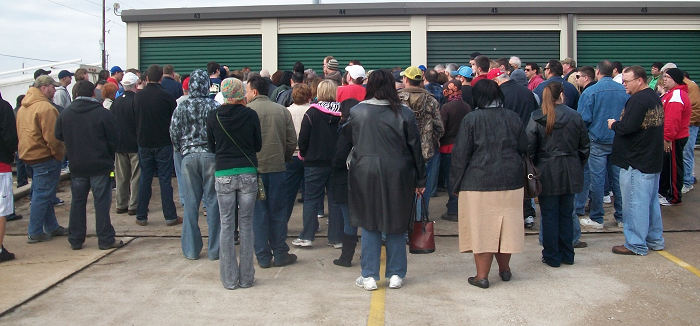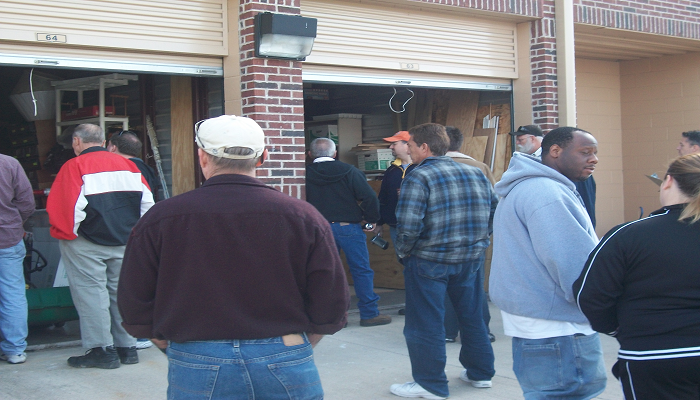We created our Dallas / Fort Worth storage auction schedule, because we recognized a problem with the former methods of obtaining storage auction information. Before AuctionsTX.com came along, a storage auction buyer had to subscribe to three expensive newspapers and read them every day, and they were still missing auctions. Not only that, they would have to spend numerous hours organizing the information, every month.
If you're new to the storage auction scene, allow me to give you some advice that will save you time and money. If you're an experienced storage auction buyer, you already know what I'm going to tell you. Ever since the storage auction reality shows premiered on television, there has been an influx of new buyers at the highly publicized storage auctions. Because of this, it has become more difficult to buy a unit at a price you can make a profit on. Don't get me wrong, you can still make money with storage unit auctions, you just have to get off the beaten path in order to get a great deal.
As I mentioned earlier, even if you subscribed to the three mainstream newspapers, you would still be missing auctions. The reason for this is that there are over 1100 storage facilities in the greater Dallas / Fort Worth area and over half of them place their public notices in one of over 30 smaller community newspapers. The auctions that are advertised in these smaller newspapers typically have fewer buyers in attendance and when there are fewer people at an auction, your chances of getting a good deal on a storage unit increase.
Here is why you should subscribe to our service:
We are the only source that provides a complete storage auction schedule in the Dallas / Fort Worth area.
On average,we list over 300 storage unit auctions every month.
We even provide 25-40 storage auctions each month, that you cannot find on any other website.
We save you time by doing all of the research for you.
We are by far the most affordable storage auction listing service.
Our auction list is user and printer friendly. You can print out the auctions for the entire week with one click of a button.
We offer educational material and blogs where storage auction buyers of all levels can ask and answer questions.
Click here to take a video tour of our website.
We realize you don't want to spend you're valuable time doing research. You want to spend your time at the storage auctions looking for some good deals. Click the join now button for instant access to the auction list.




